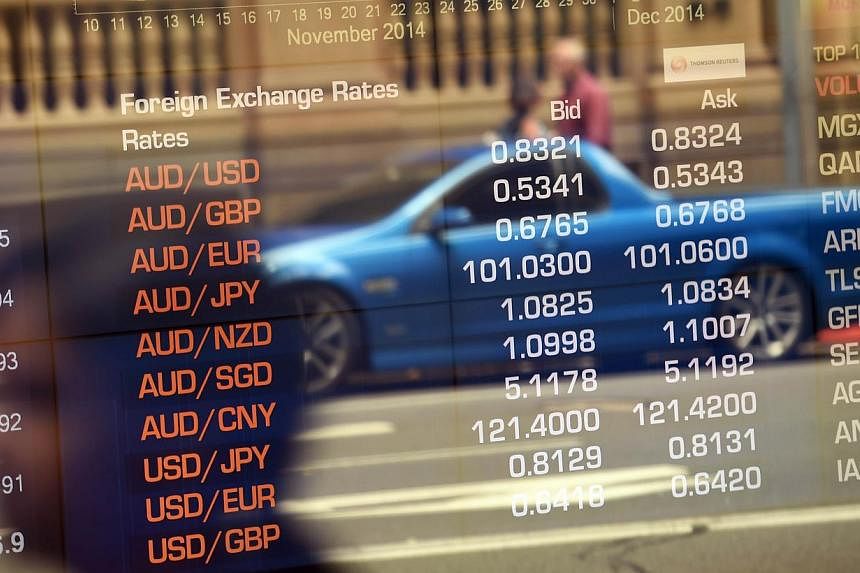SINGAPORE (BLOOMBERG) - Asia's wealthy are falling out of love with the Aussie dollar as record-low yields and sustained declines persuade them to look elsewhere, according to UBS.
Many of the bank's wealthiest clients in the region began to abandon the currency as Australia's bond yield premium over the US slid and the Federal Reserve discussed raising interest rates, said Mr Simon Smiles, its Zurich-based chief investment officer for ultra-high-net-worth individuals. The 10-year yield is 74 basis points above that of the US, down from 130 a year ago.
"Two years ago when I came to the region, in most client meetings, people were asking about Aussie assets, the Australian dollar, yield play; when you talk about it now, there's almost no interest," Mr Smiles said in an interview on Monday. "From the third quarter of last year, there's a growing belief that the US dollar would start a sustained appreciation trend."
The Aussie has tumbled 16 per cent in the past six months to the weakest level since 2009 and Reserve Bank of Australia governor Glenn Stevens has said he expects it to extend declines.
The local dollar has fallen less than the euro and the currencies of Denmark, Canada and Norway this year and "should be the next domino to fall," said Mr Olivier Korber, a strategist at Societe Generale in Paris.
Australia has been struggling with the end of a once-in-a-century resources boom and a slowdown in China, which buys more than 35 per cent of the South Pacific nation's exports. A Deutsche Bank index tracking the prices of commodities important to Australia has tumbled 30 per cent in the past 12 months with iron ore and thermal coal sliding to multi-year lows.
China's economy grew 7.4 per cent in 2014, the slowest pace in 24 years. The expansion will weaken to 7 percent this year, according to the median estimate in a Bloomberg News survey.
"The biggest structural concern for Australia and the currency is probably the landing of the Chinese economy amid falling commodity prices," said Societe Generale's Mr Korber. Australia's dollar is set to end the year at 77 US cents, he said. An earlier-than-expected decline below this level may accelerate its descent toward 70 cents, he said.
The Aussie was little changed at 79.24 cents at 12.42pm in Sydney on Tuesday after declining on Monday to 78.55 cents, the weakest since July 2009. Forecasters see it ending the year at 78 cents, according to the median estimate in a Bloomberg survey.

